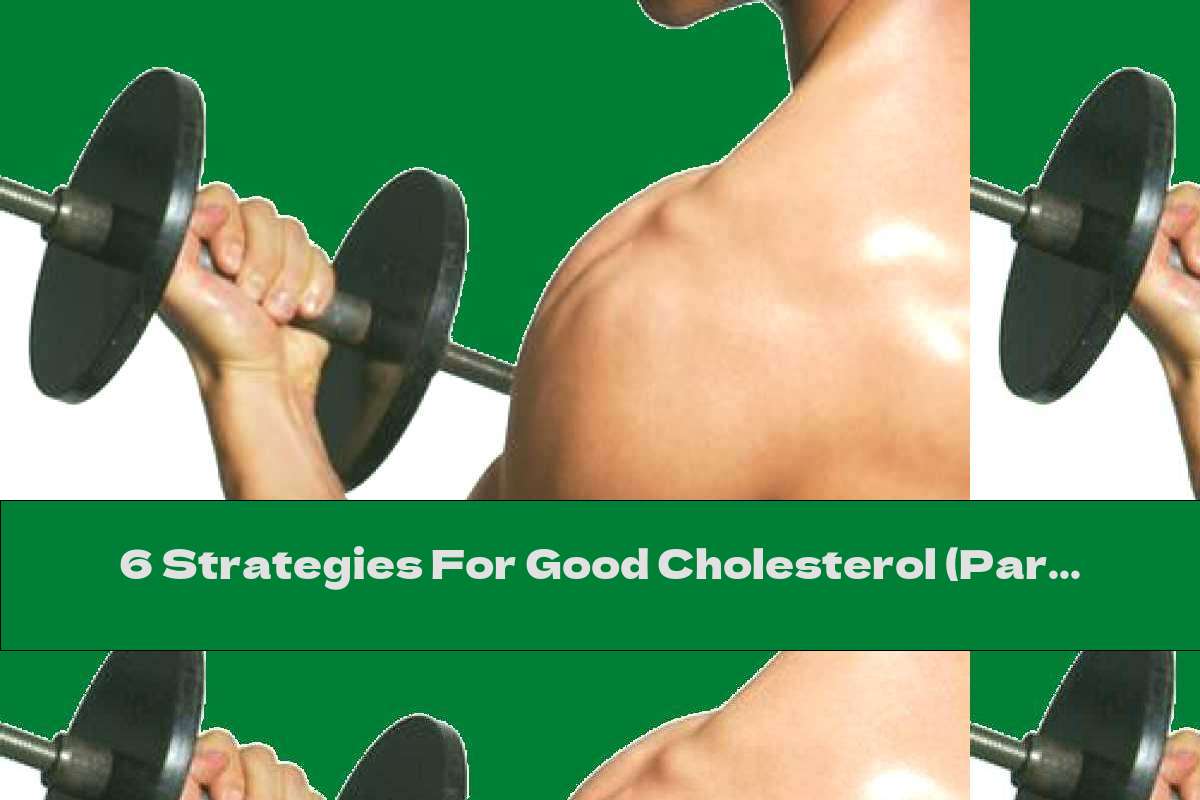6 Strategies For Good Cholesterol (Part I)
 Author: Marko Balašević
Time for reading: ~2
minutes
Last Updated:
August 08, 2022
Author: Marko Balašević
Time for reading: ~2
minutes
Last Updated:
August 08, 2022

The risk of fatal outcome in heart disease of a man with low levels of HDL-cholesterol is three times higher ...
It turns out that there is a gene registered among the local population in northern Italy, in the presence of which, despite high cholesterol levels, the body remains immune to heart disease. The discovery was made 30 years ago. About 40 people from the village of Limone sul Garda were then surveyed. The gene is called ApoA-1 Milano and is a variant of the protein in HDL, which provides the local arteries in which fatty plaques cannot accumulate ...
To lower cholesterol in the next 3 years, you do not need to be the successor to the Italians in question. For example, you can ask a specialist to prescribe several applications with ETC-216, a synthetic form of HDL-cholesterol, enhanced with the wonderful Italian protein.
In a local study published in the Journal of the American Medical Association, researchers found that patients receiving ETC-216 had a reduction in arterial plaque of 4.2% on average. Although this number does not sound convincing, according to Dr. Stephen Nilsson, head of the study, this reduction in arterial plaque in a few weeks achieves several years of life, a result that can not be achieved by any other means.
To clarify, we must note that HDL is the good cholesterol in the body, its high levels eliminate the problem of accumulation of bad LDL-cholesterol or low-density cholesterol.
In general, LDL-cholesterol travels from the liver to other tissues in the body. With high levels of bad cholesterol, fatty plaques form and build up inside the blood vessels.
HDL-lipoproteins are high density. They transport cholesterol from the blood to the liver. There it is transformed and subsequently removed from the body. High levels of good cholesterol ensure "cleansing" of blood vessels from fatty plaques.
The risk of fatal heart disease in a man with low HDL-cholesterol (40 mg / dl and lower) is three times higher. So in this case, there is nothing left but to take some measures.
6 strategies to increase good cholesterol
Calcium as a dietary supplement - increase HDL by 7%
Healthy bones, healthy heart. A year ago, a study published in the American Journal of Medicine found that people taking 1 g of calcium a day as a dietary supplement had a 7% increase in good cholesterol. Calcium improves the absorption of fat in the diet and contributes to the release of fat from the body, two factors that help raise HDL-cholesterol.
Dairy products are an excellent source of calcium ... but not in this case. Calcium taken as a dietary supplement is the best way to provide this mineral as a means of improving good cholesterol levels. Experts recommend these supplements, which offer calcium citrate in combination with 400 units of vitamin D, for better absorption of the valuable mineral.
Bodybuilding - another 19% good cholesterol
According to doctors, aerobic exercise, running and other sports with similar intensity can increase the level of good cholesterol. Researchers at Ohio University found interesting results. In older men, who perform leg exercises twice a week on fitness equipment for 16 weeks, HDL-cholesterol increases by 19%. Experts conclude that gaining weight during exercise means that it raises good cholesterol.
To improve the endurance of the legs, and HDL-cholesterol, it is necessary to do six sets of exercises with 8 repetitions. The break between series should not be more than 2 minutes, otherwise the effect is lost. The exercises use a weight 85% lower than the one that can be lifted only once.
Related Articles
- Nutrition Strategies for Managing Muscular Dystrophy Symptoms
- Mercolacholesterol: Health Benefits, Recipes, and More
- Understanding Energy Balance in Nutrition: Importance, Weight Management, and Strategies
- Understanding Energy Balance in Nutrition: Importance, Calculation, and Strategies
- Understanding Energy Balance in Nutrition: Importance and Strategies
Top Nutrition Articles Today
- . The Latest Food Pyramid: A Guide to Balanced Nutrition
- . The Role of Hydrochloric Acid in Digestion: A Comprehensive...
- . The Importance of Nutrition Conferences: Promoting Awareness...
- . The Complete Guide to E471 in Nutrition and Food Products
- . Understanding Emulsifier 472 (E472a) in Nutrition: Functions...
- . The Ultimate Guide to the Food Pyramid in Nutrition: Benefit...
- . Hydrochloric Acid in Digestion: Importance, Symptoms, and Na...
- . Chicory: 15 Health Benefits, How To Drink, Contraindications...
- . The Role of K12 in Nutrition: Benefits, Sources, and Recomme...
- . The Benefits of Myra E: A Powerful Vitamin E Supplement